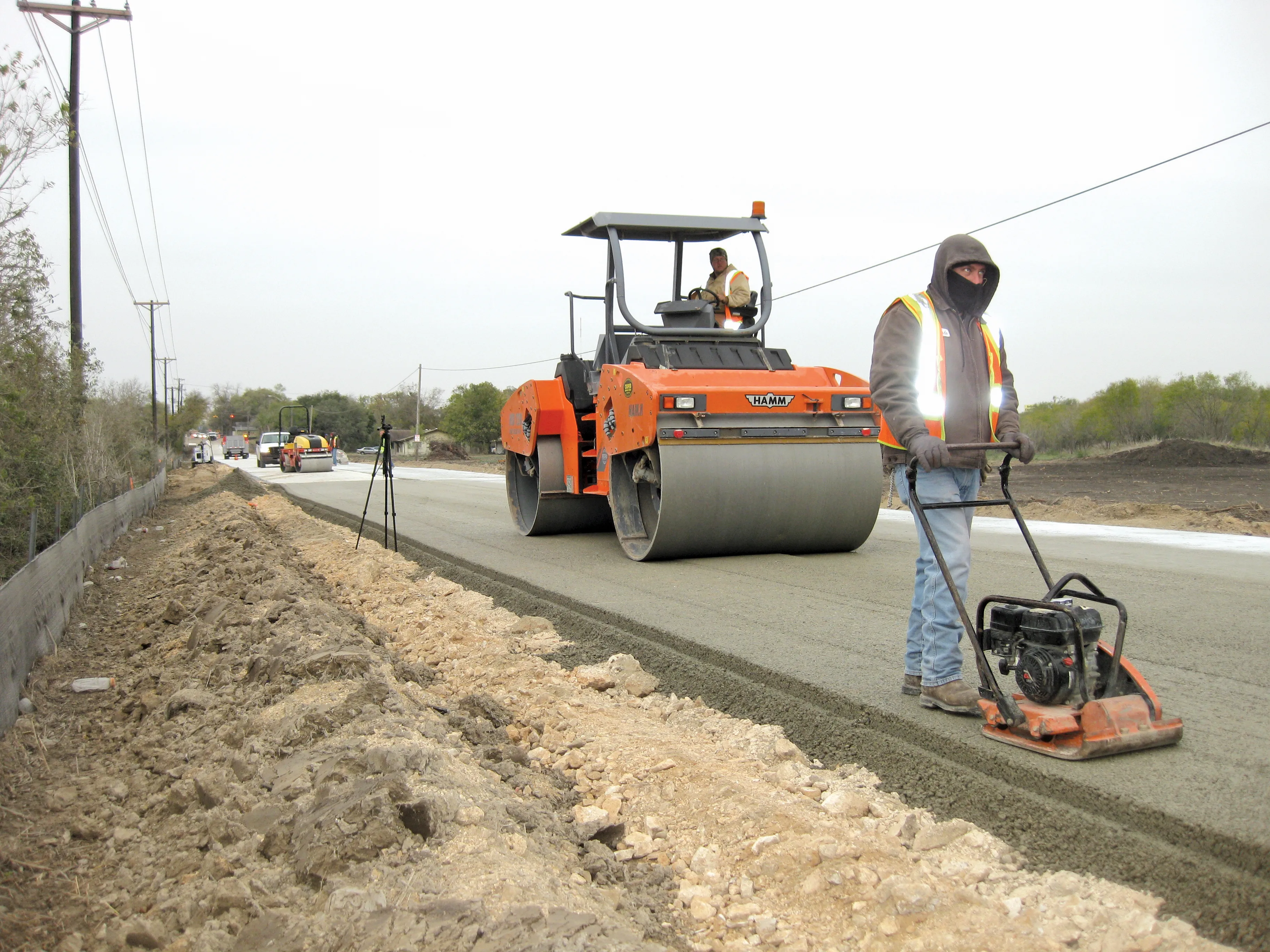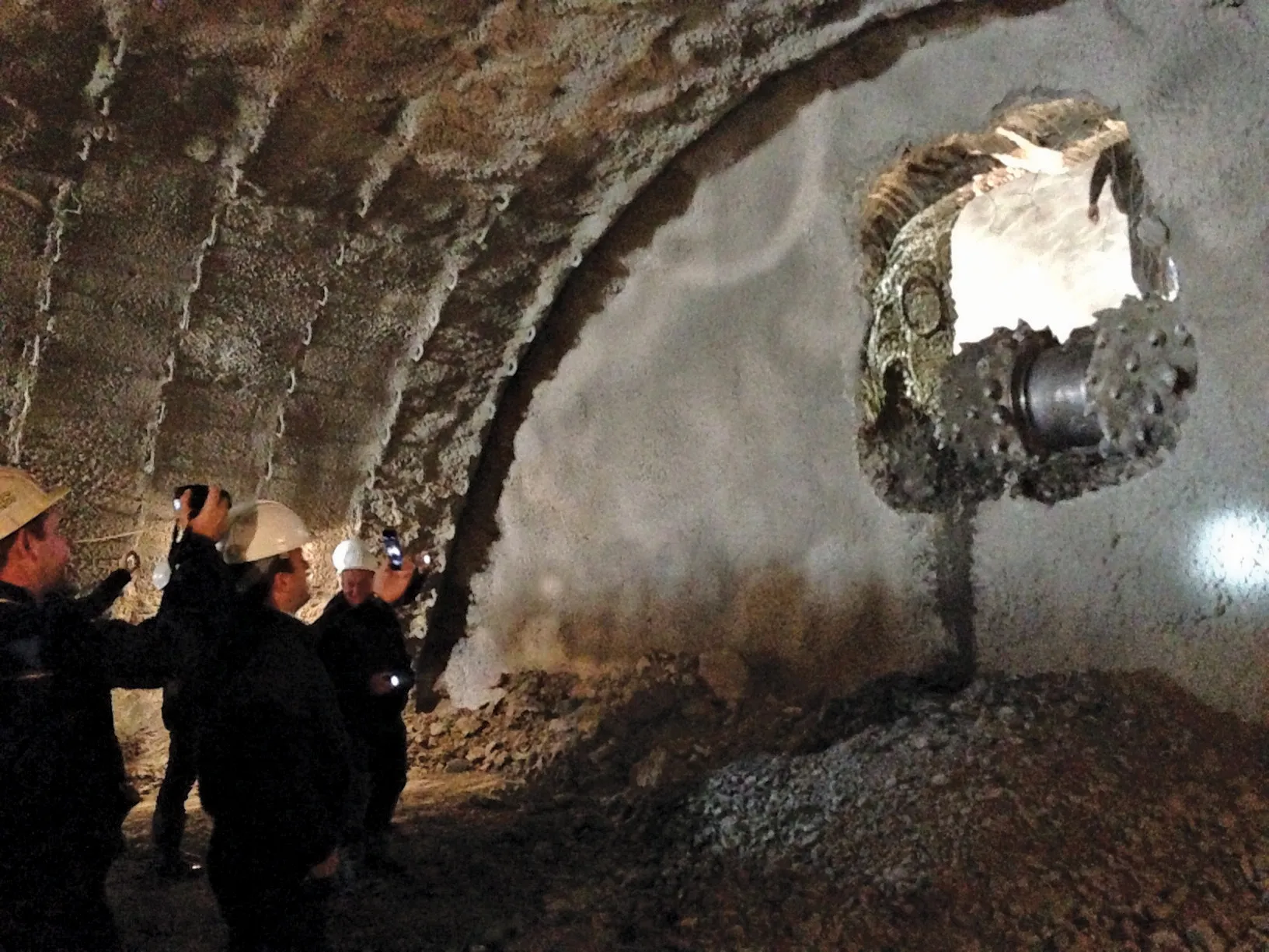The D-Kerb, a new machine that cuts granite kerbs to 45° without removing them, has just completed several road projects in London. Local authorities and highways maintenance crew no longer have the cost or inconvenience of replacing them completely, said Julie White, managing director of the company D-Drill and also a co-inventor of the D-Kerb machine. During a highways project in Offord Road, North London, technicians from D-Drill carried out the 45° cut of kerbs around the 45m circumference of a central
October 16, 2015
Read time: 2 mins

The D-Kerb, a new machine that cuts granite kerbs to 45° without removing them, has just completed several road projects in London.
Local authorities and highways maintenance crew no longer have the cost or inconvenience of replacing them completely, said Julie White, managing director of the company8254 D-Drill and also a co-inventor of the D-Kerb machine.
During a highways project in Offord Road, North London, technicians from D-Drill carried out the 45° cut of kerbs around the 45m circumference of a central reservation. The company, working on behalf of main contractor Volka CVV, then used a newly imported vapour blasting machine to give the kerbs an authentic, textured edge to ensure the aesthetics were maintained with the rest of the street. The firm also provided a gradual transitional cut from 45° to 90° at each end of the project. The reason for the work was to make it a more cycle-friendly environment for hundreds of cyclists who bike past the reservation on a daily basis. Julie White said: “I am so pleased that the D-Kerb machine is already proving so popular and is providing a practical, cost-effective solution. “I invented the machine to meet a specific need around cycle lanes. I explored if there was anything else like it on the market and when I discovered that there wasn’t, I came up with the design.
“It’s the only machine of its type in the world and with cycling and cycle lanes becoming increasingly popular, it could be extremely busy over the next few years – especially in London and other major cities in the UK.”
She added: “We’ve brought in the vapour blasting machine from the USA to ensure we give the kerbs the right textured finish and they do look great – it’s also better from a health & safety point of view because there is less hand/arm vibration than with other methods.”
Local authorities and highways maintenance crew no longer have the cost or inconvenience of replacing them completely, said Julie White, managing director of the company
During a highways project in Offord Road, North London, technicians from D-Drill carried out the 45° cut of kerbs around the 45m circumference of a central reservation. The company, working on behalf of main contractor Volka CVV, then used a newly imported vapour blasting machine to give the kerbs an authentic, textured edge to ensure the aesthetics were maintained with the rest of the street. The firm also provided a gradual transitional cut from 45° to 90° at each end of the project. The reason for the work was to make it a more cycle-friendly environment for hundreds of cyclists who bike past the reservation on a daily basis. Julie White said: “I am so pleased that the D-Kerb machine is already proving so popular and is providing a practical, cost-effective solution. “I invented the machine to meet a specific need around cycle lanes. I explored if there was anything else like it on the market and when I discovered that there wasn’t, I came up with the design.
“It’s the only machine of its type in the world and with cycling and cycle lanes becoming increasingly popular, it could be extremely busy over the next few years – especially in London and other major cities in the UK.”
She added: “We’ve brought in the vapour blasting machine from the USA to ensure we give the kerbs the right textured finish and they do look great – it’s also better from a health & safety point of view because there is less hand/arm vibration than with other methods.”








